12 Everyday Foods That Help Lower Cholesterol (With Recipes!)
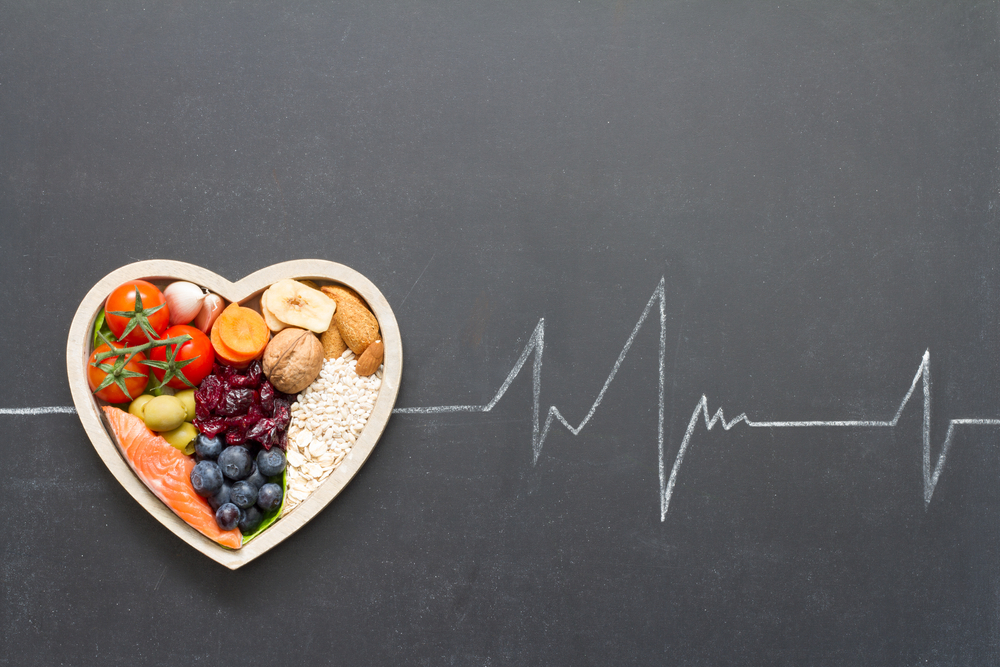
When was the last time you thought about your cholesterol? It can be easy to forget about unless you’ve recently been to the doctor, especially since high cholesterol doesn’t usually come with noticeable symptoms.
Unfortunately, the CDC stipulates that nearly 25 million U.S. adults have high cholesterol—dramatically increasing their risk for heart disease, heart attacks, and strokes.
While medication or supplements may be necessary for some situations, making dietary and lifestyle changes is often enough to manage cholesterol naturally.
High cholesterol levels can lead to the buildup of plaque in the arteries, increasing the risk of heart disease and stroke. By consuming foods that lower cholesterol, you can do your body a favor, reduce your risk of heart disease, and improve your overall health.
Here are our top 12 foods to incorporate into your diet that can help lower cholesterol naturally.
1. Sweet Potatoes

Photo Credit: Shutterstock
Sweet potatoes are not only delicious; it turns out they’re a major source of soluble fiber, which is bad cholesterol’s worst nightmare.
Soluble fiber helps the body excrete cholesterol by binding to bile acids. Sweet potatoes are loaded with soluble fiber, especially the peel—so if you want to maximize its benefit, go ahead and eat the skin, too!
This powerful super food is also listed on the Blue Zones foods list, which highlights the diets of some of the longest living people in the world.
Here are a few sweet potato recipes to try to help lower cholesterol:
- Sweet Potato Toast 4 Ways
- Simple Roasted Sweet Potatoes
- Shepherd’s Pie with Sweet Potato Topping
- Roasted Sweet Potato Soup
- Air Fryer Sweet Potatoes
2. Oats and Barley
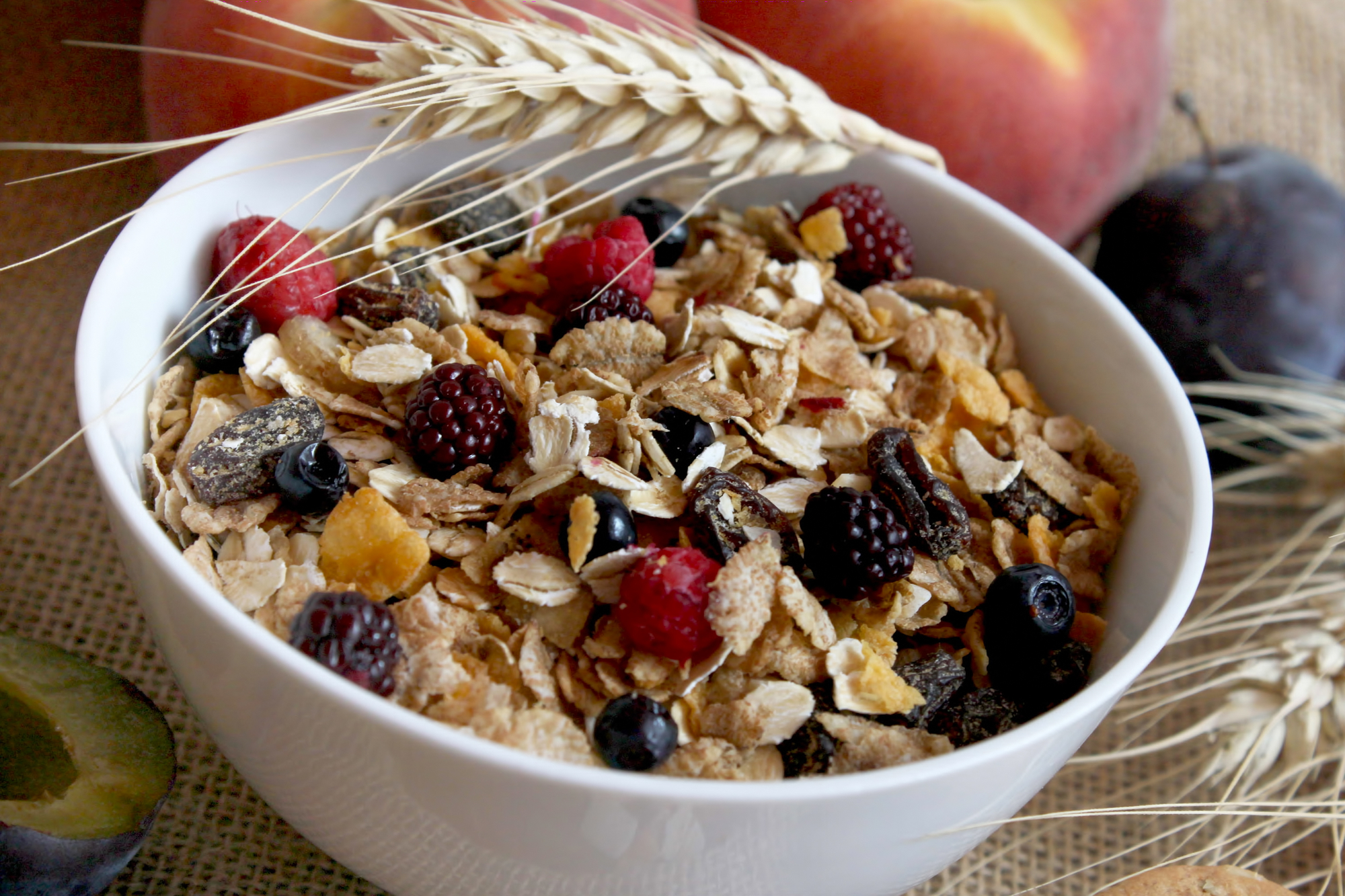
Photo Credit: Depositphotos
There’s a reason oatmeal is touted as one of the healthiest ways to start your day; it’s been proven that eating oats regularly can lower your LDL (bad cholesterol) by 5.3% in only 6 weeks.
Oats and barley are two of the most effective grains for lowering cholesterol. They are abundant sources of soluble fiber, which can be an essential aid in achieving low cholesterol levels.
Soluble fiber helps to reduce the risk of plaque buildup in the bloodstream by reducing the absorption of cholesterol in the arterial walls.
In addition to their high soluble fiber content, oats also contain beta-glucan, which absorbs LDL from the blood.
Get creative with your morning oatmeal; the health benefits go way beyond just cholesterol!
Here are a few healthy oatmeal recipes to try:
- Vanilla Raspberry Overnight Oats
- Banana Nut Oatmeal
- Apple Cinnamon Baked Oatmeal
- Overnight Pumpkin Spice Oatmeal
3. Olive Oil
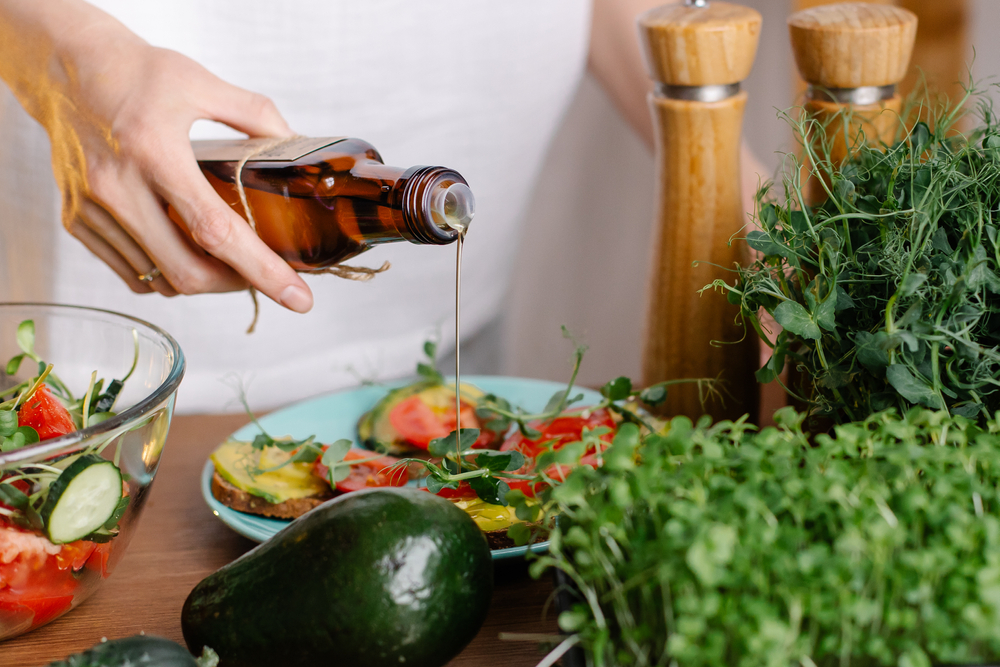
Photo Credit: Shutterstock
Olive oil is a healthy fat that plays a big part in most Mediterranean diets, keeping your heart healthy with monounsaturated fatty acids (MUFAs), which naturally lower LDL cholesterol.
Make the switch from butter or margarine to olive oil, and your cholesterol levels will thank you.
When purchasing olive oil, it’s crucial to choose high-quality, extra-virgin olive oil to reap the maximum health benefits. Extra-virgin olive oil is minimally processed and is rich in health-promoting compounds, making it a better choice than highly processed vegetable oils like palm and canola oil.
As a bonus, healthy fats can also help you naturally lose weight.
4. Eggplant
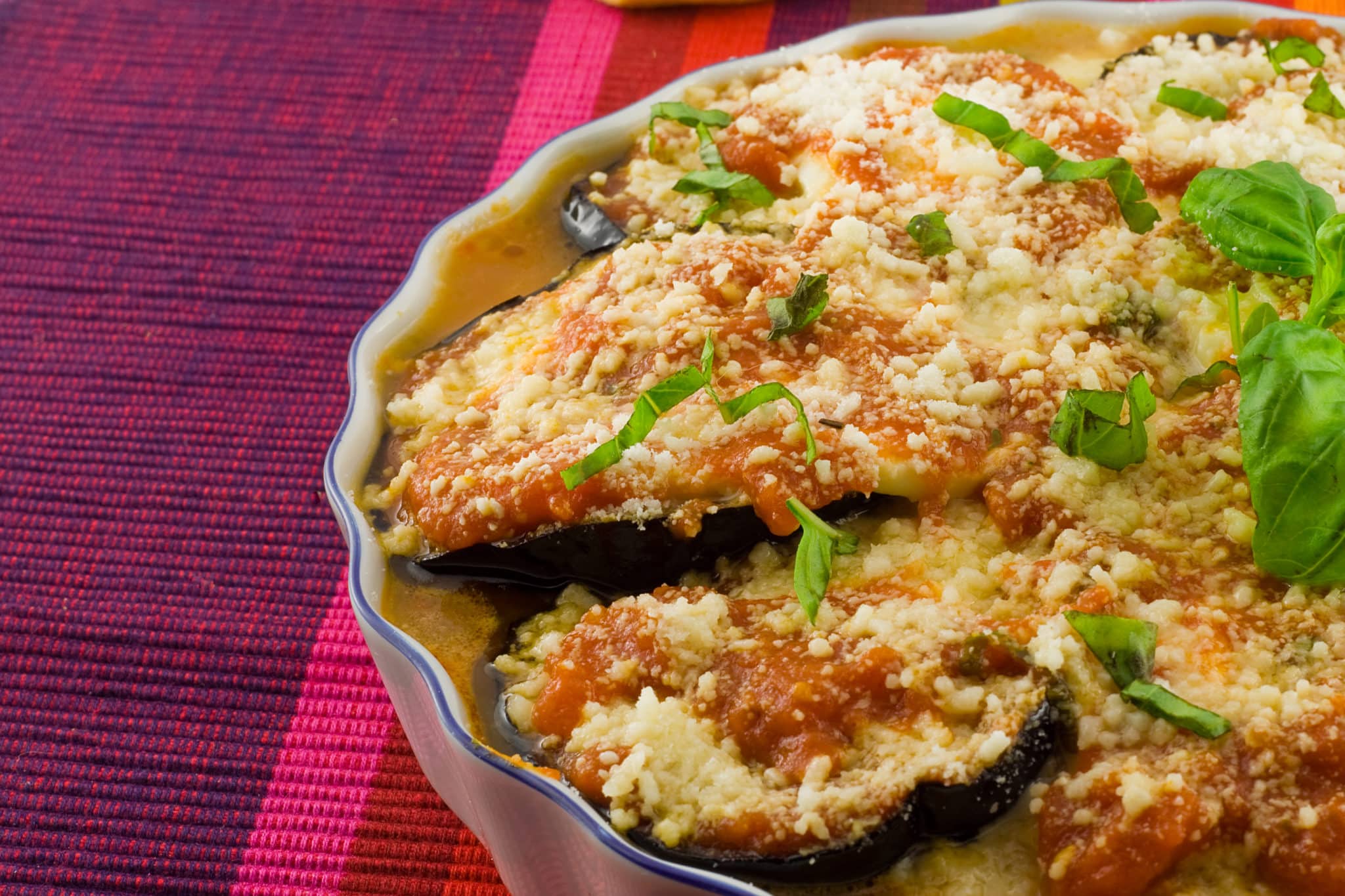
Photo Credit: Shutterstock
Eggplants are loaded with fiber, which you’ve now learned is key to reducing LDL levels. Plus, the health benefits of eggplant are pretty impressive, even beyond cholesterol.
Eggplant is a great substitute in many popular recipes you may already love and enjoy. Simply make the swap and enjoy great taste, plus amazing health benefits.
Here are a few eggplant recipes to try:
5. Grapefruit
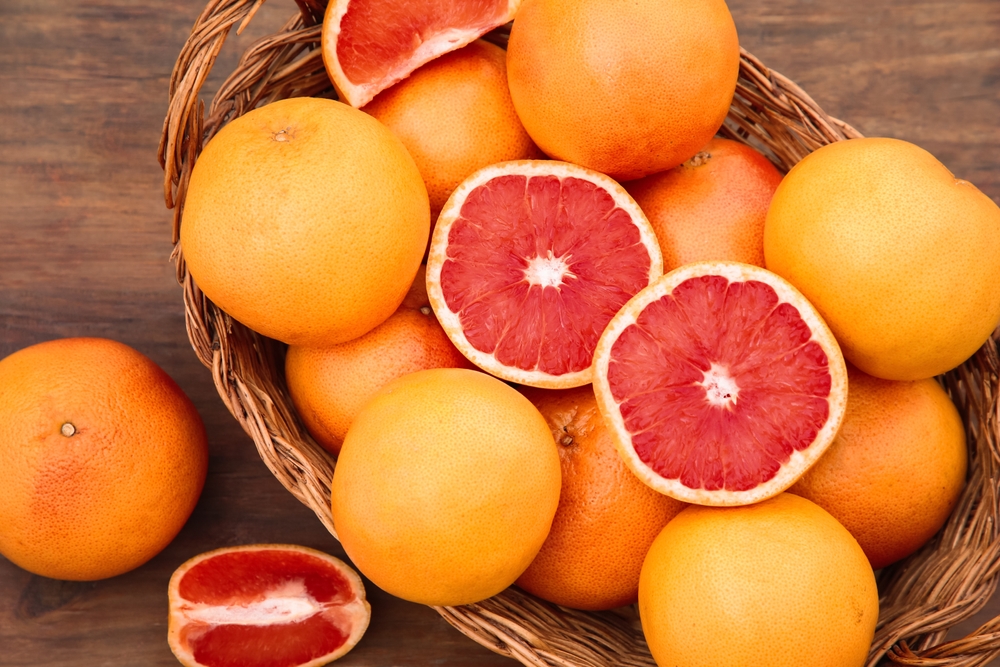
Photo Credit: Shutterstock
Studies have shown that adding grapefruit to one’s diet can lower LDL cholesterol by up to 20%.
Grapefruit contains antioxidants and fiber, as well as a flavonoid called naringenin, which has been shown to prevent plaque buildup and lower both LDL cholesterol and triglycerides.
As an added bonus, grapefruit is a fat-burning food that can increase your metabolism naturally.
6. Salmon and Other Fatty Fish
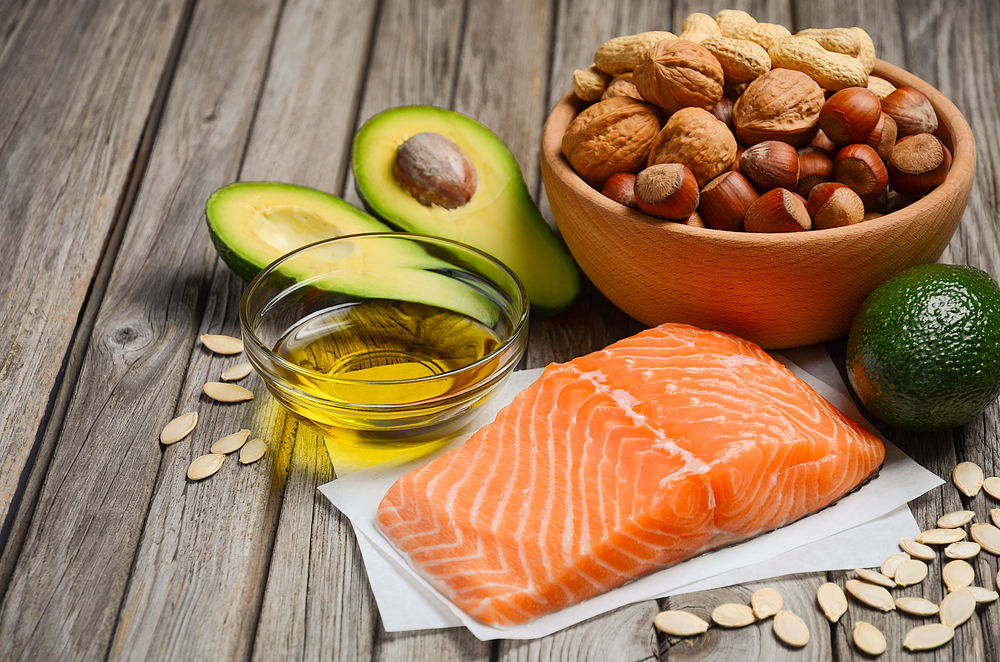
Photo Credit: Shutterstock
If you want to lower your cholesterol naturally, adding fatty fish to your diet is an excellent idea. Salmon, mackerel, and sardines are all ideal sources of omega-3 fats, which are vital for maintaining overall health and well-being.
The omega-3 fatty acids found in salmon and other fish can boost your HDL levels (good cholesterol) and ward off heart disease and dementia.
To get the most benefit, the American Heart Association recommends eating two 6-ounce servings of fish per week (particularly fatty fish) to help reduce your risk of heart disease and stroke.
Here are a few healthy salmon recipes worth trying:
7. Dark Chocolate
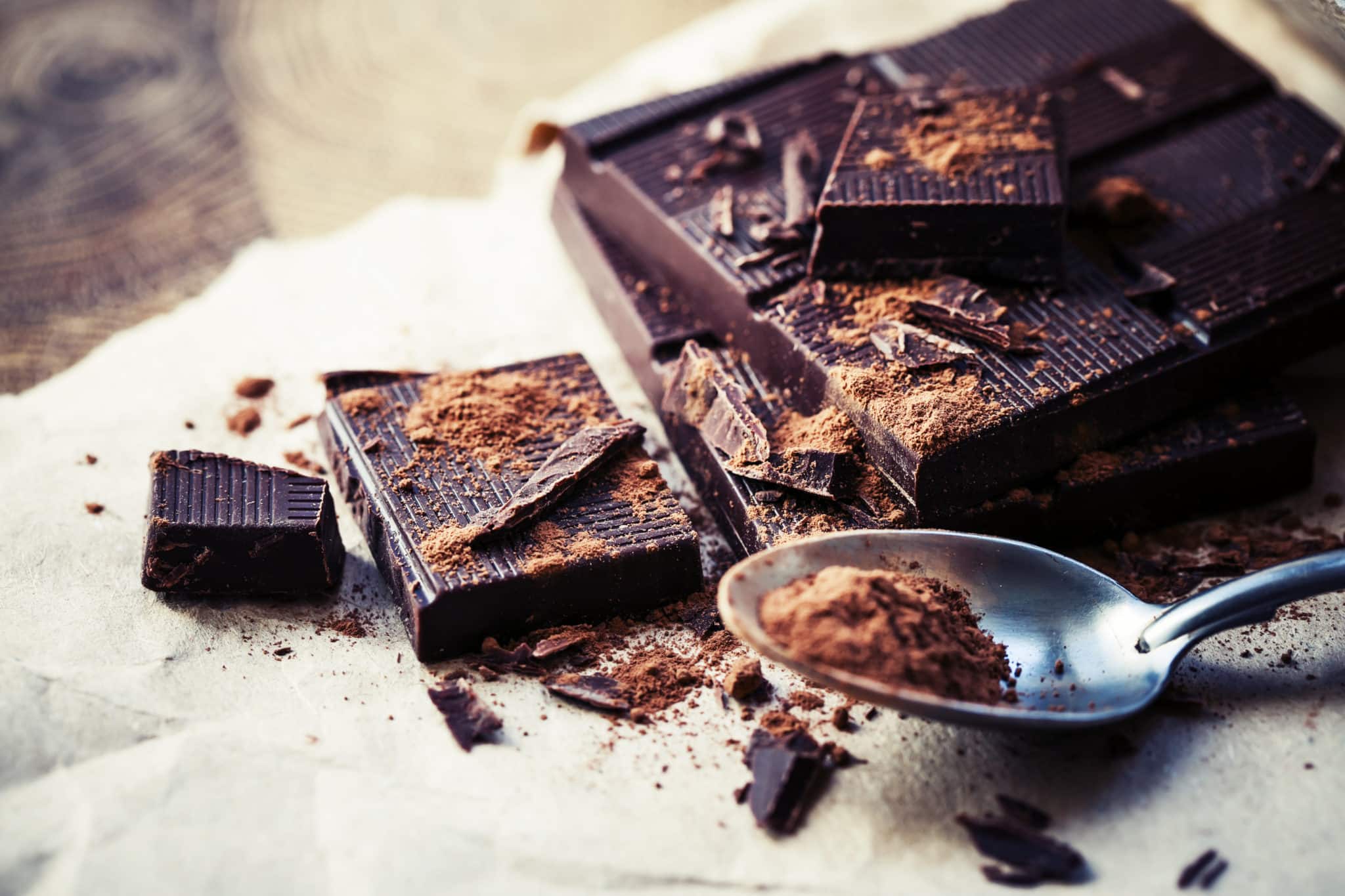
Photo Credit: Shutterstock
Yes, really! Loaded with antioxidants, dark chocolate increases your HDL (good) cholesterol levels and keeps blood platelets from sticking together. (Of course, remember everything in moderation!)
For the best benefits, stick with organic dark chocolate as an occasional indulgence. This dairy-free dark chocolate ice cream might be the perfect treat to keep on hand.
8. Healthy Nuts
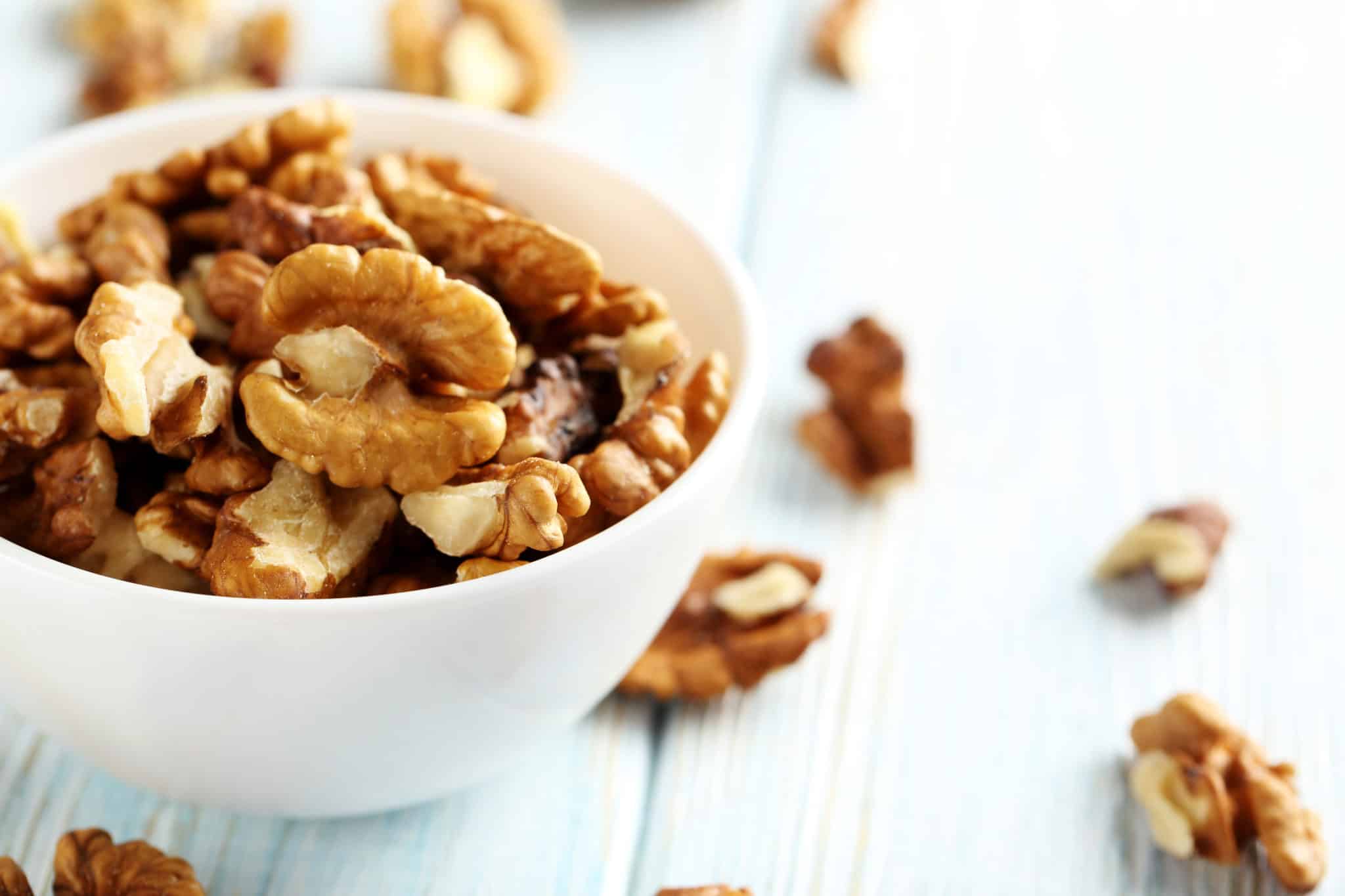
Photo Credit: Shutterstock
If you’re looking for a satisfying snack that won’t compromise your cholesterol levels, almonds and walnuts are the way to go. These nuts are packed with healthy fats and vital nutrients that can help reduce LDL cholesterol levels.
Eating peanuts, almonds, or walnuts can lower your LDL cholesterol; one study, in particular, found that a handful of walnuts per day can decrease LDL (bad) cholesterol by as much as 10 percent, all while increasing HDL (good) cholesterol, too.
Their high-calorie count means it’s important to keep portion sizes small—around one to one and a half ounces per day—to get the most benefit.
9. Garlic
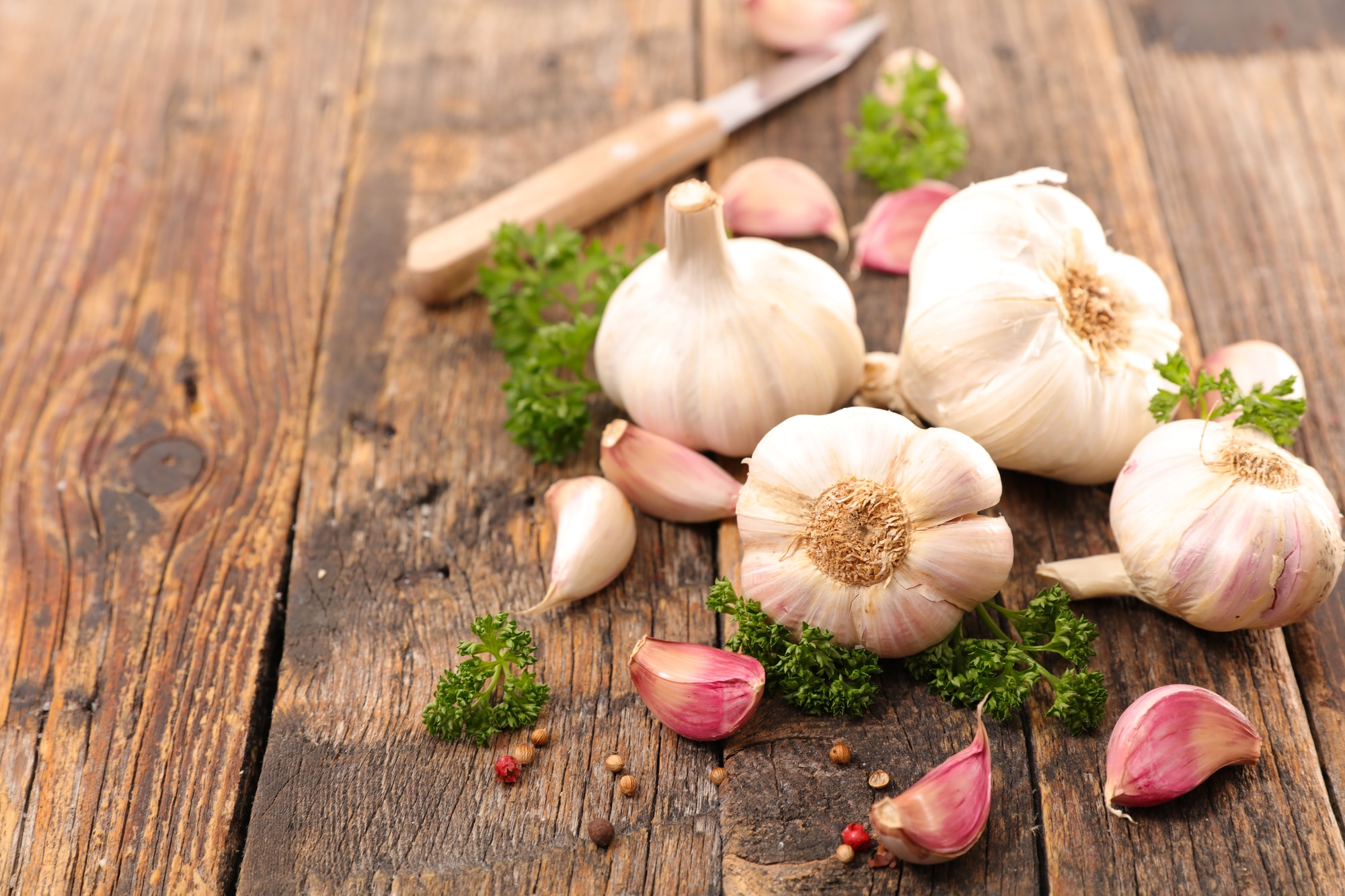
Photo Credit: Depositphotos
Garlic is amazing for many reasons. It has immune-boosting properties and adds a burst of flavor to some of our favorite dishes.
It’s also a great cholesterol-lowering food to stock up on next time you’re at the grocery store. Research shows it can prevent LDL particles from clogging up artery walls.
Better yet, it’s easy (and almost necessary!) to incorporate into a lot of recipes, like this garlic shrimp on squash noodles or even homemade hummus.
Aim for a few fresh cloves per day!
10. Avocado
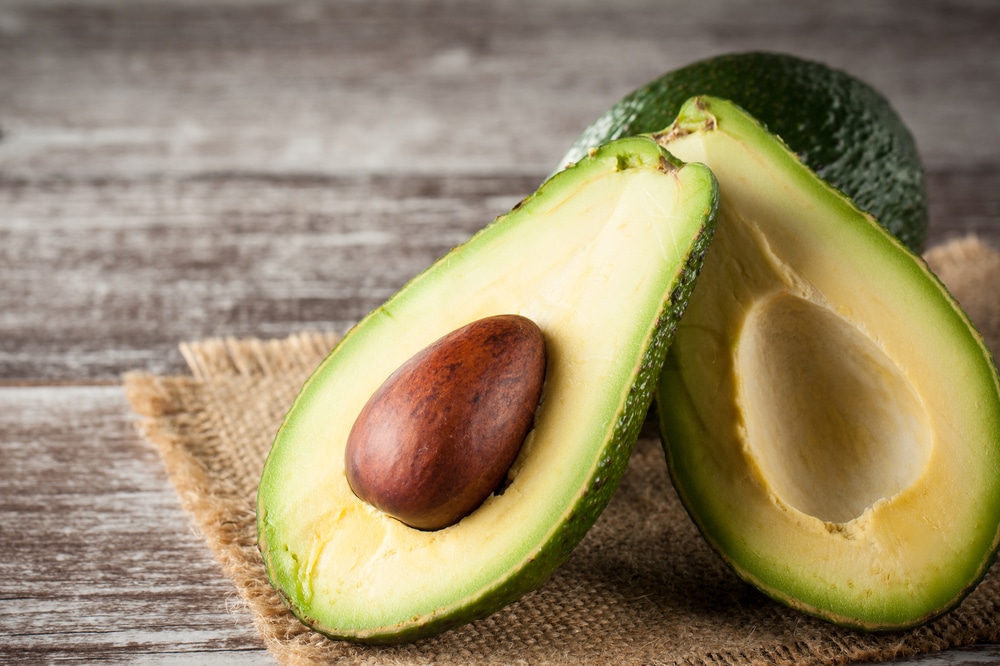
Photo Credit: Shutterstock
If you’re looking for a delicious and nutritious way to lower your cholesterol levels, look no further than avocados. They are a superfood packed with essential nutrients, such as potassium, magnesium, fiber, and healthy fat.
The monounsaturated fats in avocados can help lower LDL (bad) cholesterol levels, reducing the risk of heart disease.
Incorporating avocado into your meals is easy—add it to salads and smoothies, or even use it as a spread on toast. Just be mindful of portion sizes, as avocados are high in calories.
A quarter or half of an avocado is a perfect serving size, depending on your nutritional needs.
Here are a few avocado recipes you might enjoy:
- Healthy Homemade Guacamole
- Avocado Egg Salad Toasts
- Creamy Avocado Salsa
- Healthy Avocado Deviled Eggs
11. Blueberries
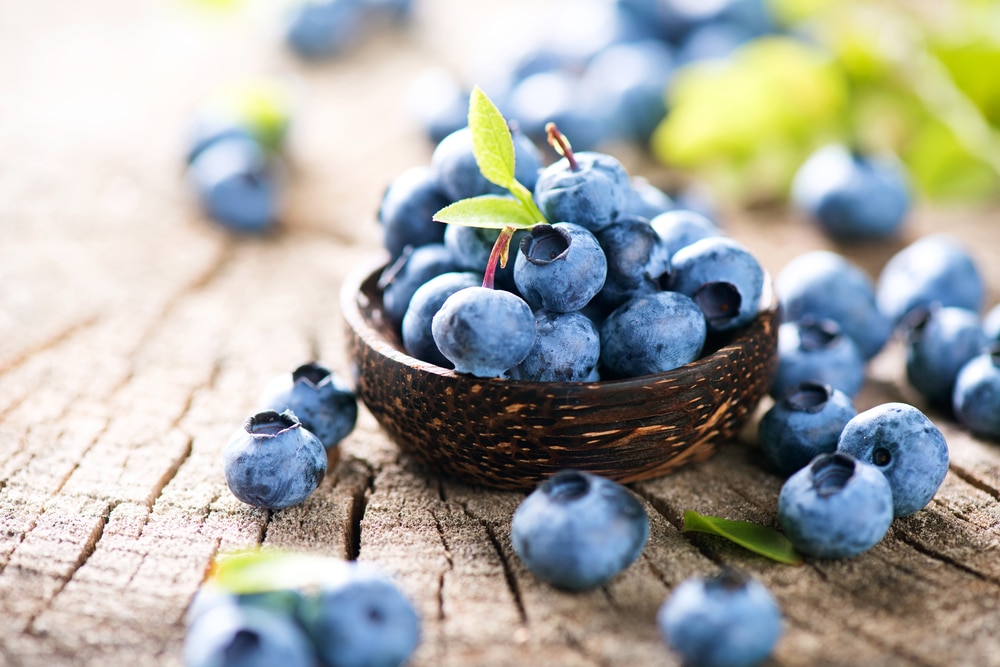
Photo Credit: Shutterstock
Blueberries are packed with anti-inflammatory properties and antioxidants that help fight cell damage caused by free radicals. These antioxidants have been shown to lower LDL cholesterol levels, reducing the likelihood of heart disease.
Blueberries are an excellent source of soluble fiber, which binds to and helps eliminate cholesterol from the body. Eating just one cup (148 grams) of blueberries a day can contribute to healthy cholesterol levels.
If you’re looking for a delicious way to incorporate blueberries into your diet, try adding them to your morning yogurt, oatmeal, or smoothie. They also make a fantastic topping for pancakes and waffles and can help satisfy your sweet tooth cravings without any artificial added sugar.
These are a few blueberry recipes worth trying:
- Blueberry Muffin in a Mug
- Blueberry Walnut Protein Pancakes
- Red, White and Blueberry Smoothie
- Lemon Blueberry Chia Scones (Gluten Free)
12. Beans and Legumes
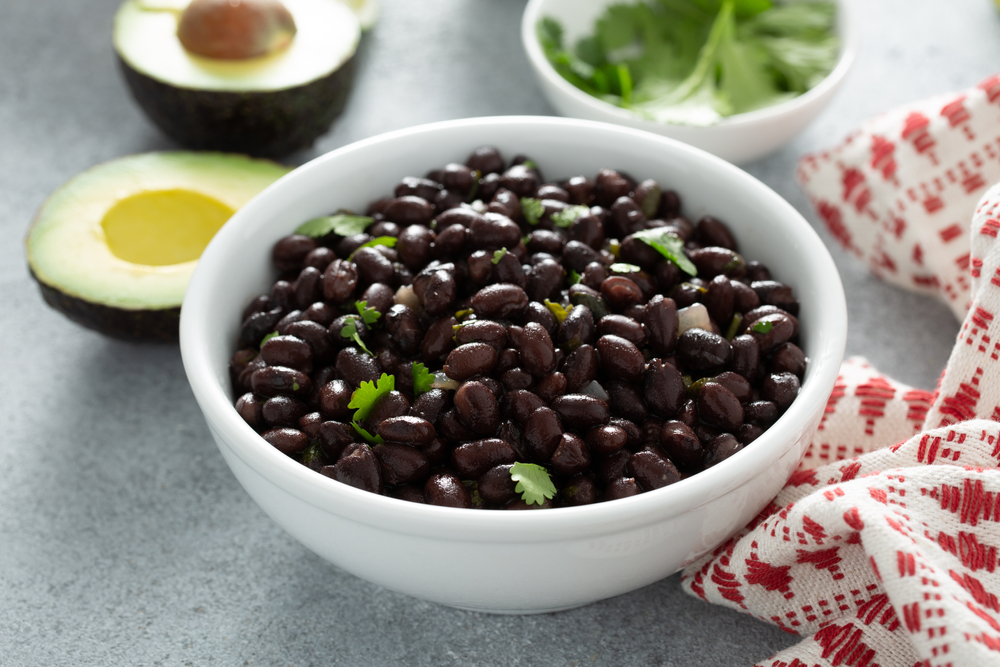
Photo Credit: Shutterstock
Beans and legumes such as lentils, chickpeas, and black beans are excellent sources of soluble fiber, making them an effective weapon against high cholesterol. The soluble fiber in these fiber-packed foods binds to cholesterol and facilitates its elimination from the body.
Adding beans and legumes to your diet can help improve cholesterol profiles, promote heart health, and increase feelings of fullness. Their high fiber content means that they can also help stabilize blood sugar levels and regulate digestion. They are also a blue zone food, which means they are a staple for some of the oldest populations in the world.
Other examples of beans and legumes that can be added to your diet include kidney beans, navy beans, and pinto beans.
Here are a few bean and legume recipes to try:
- Black Bean and Corn Salsa
- Way Too Easy Black Bean Soup
- Healthy White Chicken Chili
- Veggie Loaded Turkey Chili
The Takeaway
Lowering cholesterol levels is crucial for maintaining a healthy heart and reducing the risk of heart disease and stroke.
By incorporating these 12 heart-healthy foods into a balanced and varied diet rich in fruits, vegetables, and whole grains (combined with regular exercise), you can naturally lower your cholesterol levels and take positive steps toward improving your overall well-being.
